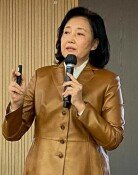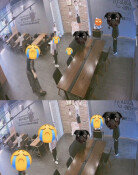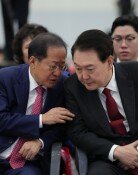[Editorial] The Real Face of the Democratic Party
[Editorial] The Real Face of the Democratic Party
Posted June. 01, 2009 08:03,
At a party convention to launch the now-defunct Uri Party at Seoul Olympic Park on Nov. 11, 2003, a message from then President Roh Moo-hyun that congratulated the partys foundation was recited. The message read, We must end a political structure in which certain political parties monopolize parliamentary seats and other elected posts in certain regions.
The Uri Party was created at the initiative of a pro-Roh group who criticized the Millennium Democratic Party as a political faction based on outdated regionalism. The Millennium Democratic Party had picked Roh as its presidential candidate and got him elected. Uri went on to win 152 of the 299 parliamentary seats in the 2004 general elections thanks to the backlash from the failed parliamentary motion to impeach Roh. Uri members shared their overflowing joy of victory with President Roh, singing March for Compatriots at the presidential office May 29 that year.
When the public approval rating for President Roh plunged in the mid part of his administration, however, Uri reversed course and began distancing itself from the chief executive. The party blamed Roh for its successive crushing defeats in the local elections and by-elections, and pressured him to leave the party. Roh eventually ended his affiliation with the party in February 2007. Then Uri changed its name to the United New Democratic Party at its convention to nominate its presidential candidate. Contenders in the party primaries, including Chung Dong-young, Sohn Hak-kyu and Kim Geun-tae, declared either an anti-Roh or non-Roh stance. After the 2007 presidential election, a number of Roh loyalists, including Lee Hae-chan and Rhyu Shi-min, defected from the party to protest its offensive against Roh.
Democratic Party Chairman Chung Sye-kyun, whose party inherited the legacy of Uri Party and the United New Democratic Party, told a news conference yesterday, We will inherit the Roh Moo-hyun spirit. He added that the Democratic Party will take steps to inherit and develop Rohs legacy and conduct a campaign to honor the late president. He said, President Roh was a victim of political revenge, demanding an apology from President Lee Myung-bak and the dismissal of the justice minister, prosecutor-general, and the head of the central investigation department of the Supreme Public Prosecutors Office, which conducted the probe into Roh. Chung, however, had said early last week that the Democratic Party would refrain from politicizing Rohs death. In the wake of a surge in the number of mourners, the party is instead trying to take advantage of Rohs posthumous popularity. Song Young-gil, a member of the partys supreme council, said April 8, How former President Roh came to take it (money from Taekwang Industry Chairman Park Yeon-cha) while in office must be thoroughly clarified, but the mood has completely changed.
The government and the ruling Grand National Party are only wary of public opinion. They have failed to present a vision and reform to take care of the working class and the underprivileged, who have suffered from mental strain and anxiety following Rohs death. It is doubtful whether this months parliamentary session will be conducted normally in the face of a flurry of pending issues, including North Koreas mounting threat, the status of temporary workers, and the disputed amendment on media law.
Above all, the presidential office has not seriously reflected on and agonized over the crisis, and has shown no commitment to resolve it. The government, ruling and opposition parties must remember that if they become oblivious to their responsibilities to overcome the crisis, and instead waste time for political plots, self-interest and opportunism, they will face the wrath of the public.







